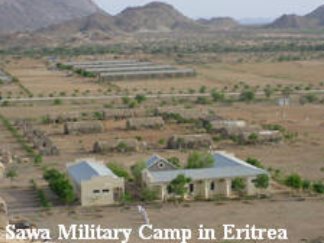Eritrea: rights report blasts torture state
 A new report by the Oslo Center for Peace and Human Rights details "extensive and systematic" rights violations faced by thousands of political prisoners in Eritrea. The report charges that between 10,000 and 30,000 people are held in a country of about five million. Prisoners are held in shipping containers, or in bunkers deep underground. Torture is routine, with victims sometimes hung from their wrists and feet from trees in the sun or the rain.
A new report by the Oslo Center for Peace and Human Rights details "extensive and systematic" rights violations faced by thousands of political prisoners in Eritrea. The report charges that between 10,000 and 30,000 people are held in a country of about five million. Prisoners are held in shipping containers, or in bunkers deep underground. Torture is routine, with victims sometimes hung from their wrists and feet from trees in the sun or the rain. The president of the Oslo Center, Kjell Magne Bondevik, calls for the appointment of a UN fact finding commission in order to chart the human rights violations in that country. "The human rights violations on the Horn of Africa have been overlooked year after year, and the Western countries' focus has been directed to other issues, such as stability and security," he said. "It is time now to direct the focus to the oppression of a forgotten people."
The report, "The Lasting Struggle for Freedom in Eritrea," notes that when Eritrea gained independence from Ethiopia in 1993, many hoped that the new country would develop into a democratic society with respect for human rights. Instead, it has evolved in an ever more oppressive direction. Today all political opposition is forbidden, and all independent media institutions were closed in 2001. In addition, the authorities intervene directly in ongoing court cases and control the courts. Imprisonment, torture and summary executions are increasingly frequent. An extensive and efficient system of informants keeps the people in an "iron grip," the Oslo Center charges.
Today, Eritrea is practically isolated from the surrounding world. The Oslo Center states that Eritrea must come out of isolation if the international community is to contribute to a positive development for the country. The Oslo Center recommends that as a first step, the UN appoint a fact finding commission with a mandate to investigate the violations in the country. (Radio New Zealand, Nov. 8; Oslo Center for Peace and Human Rights, Oct. 22)


![[AIM] Asmarino Independent Media](/images/logo/ailogo.png)